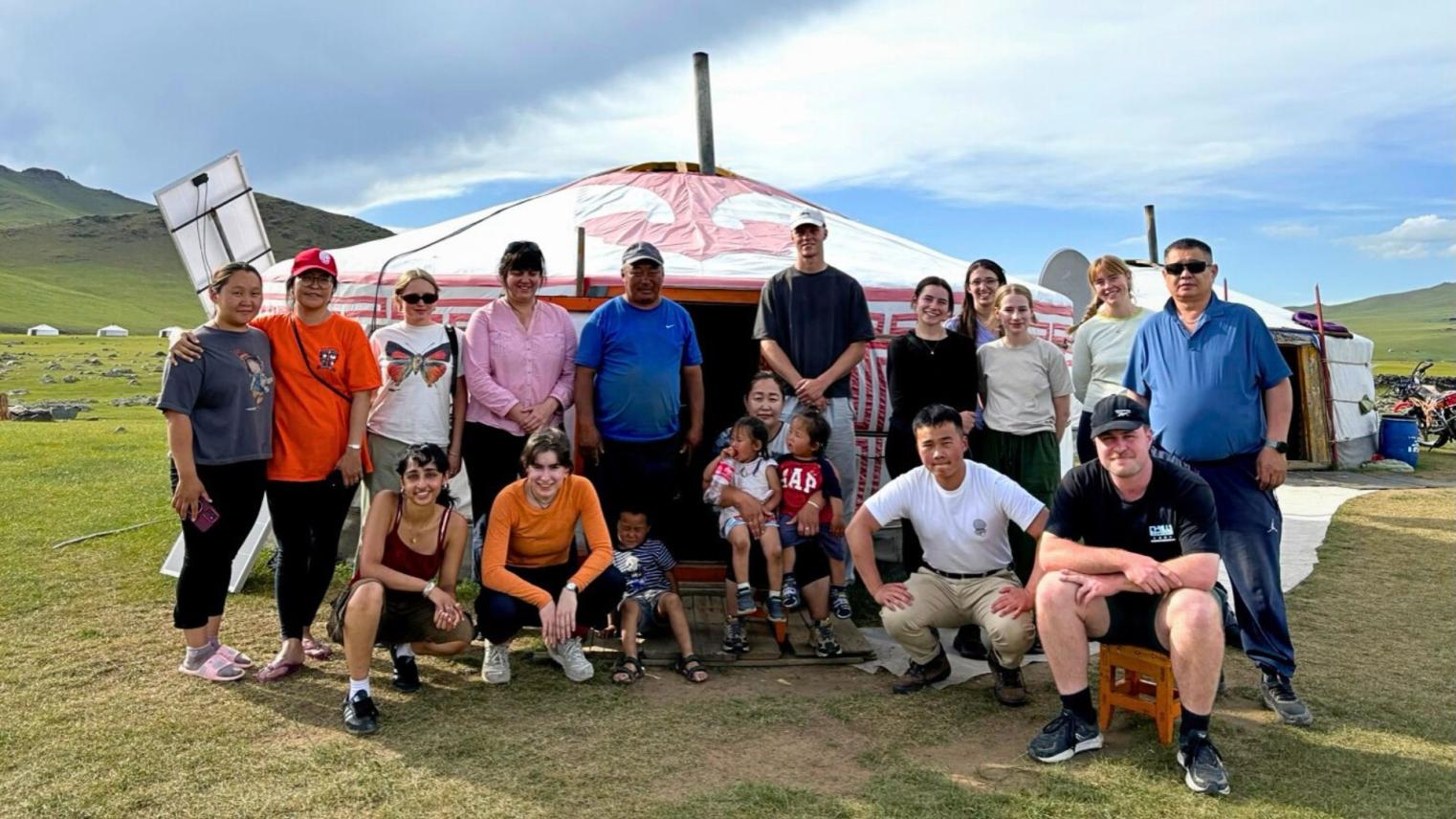Fostering engagement with Mongolia - one of the world’s fastest-growing economies

Mongolia’s rapid economic growth, driven largely by its expanding mining sector, underscores the growing importance for Australia to foster strong diplomatic ties with the country.
The Australian ambassador to Mongolia, H.E. Katie Smith, recently described the relationship between the two nations as progressing from “strength to strength” in its trajectory. Amidst this increasingly prosperous diplomatic partnership, the Australian National University (ANU) is making significant contributions through its Mongolia Institute.
Established in 2012 and hosted at the ANU College of Asia and the Pacific, the ANU Mongolia Institute stands as the only dedicated hub for Mongolian studies in the Southern Hemisphere. This unique position allows the Institute to build impactful partnerships, conduct crucial research, and facilitate dialogue between Australia and Mongolia.
Professor Li Narangoa, the Institute’s founding director, was one of the few scholars who identified a gap in research and cooperation between the two nations.
“As Australia’s engagement with Mongolia was growing, with over 50 Australian companies investing in the country, I saw the need for an institute focused on Mongolia,” she said.
The Institute connects multidisciplinary academics and postgraduate students across ANU with an interest in Mongolia. It also collaborates with government agencies such as DFAT and fosters diplomatic relations through partnerships with both the Mongolian Embassy in Canberra and the Australian Embassy in Ulaanbaatar.
The ANU Mongolia Institute played a pivotal role in establishing a Memorandum of Understanding (MoU) between ANU and the National University of Mongolia (NUM). This partnership has enabled language courses, in-country fieldwork and archival research projects. The Institute has also collaborated with the Inner Mongolia University for Nationalities, hosting visiting Mongolian academics.
“As the founding director, my goal has been to facilitate networks and support young scholars working on Mongolia-related topics, while also hosting visitors from both Australia and overseas,” Professor Narangoa said.
One scholar who benefited from this academic exchange is Associate Professor Natasha Fijn, current Director of the ANU Mongolia Institute. She is committed to continuing the academic exchange programs that shaped her early career.
“The Institute currently hosts two academic staff and two PhD students from the National University of Mongolia, contributing to the vibrant research environment,” said Associate Professor Fijn.
Research that matters
The Institute’s research covers a diverse range of topics that have real-world impact. One of its key projects, led by Associate Professor Fijn, focuses on tracking the spread of influenza in Mongolia through animal populations. Funded by an Australian Research Council grant, this project explores Mongolian medicine and healing practices.
“My Future Fellowship involves collaborating with Mongolian researchers using a multispecies anthropological approach to studying influenza. The fieldwork takes place on the boundaries of three reserves in Mongolia, where wild and domestic animals interact, including the Mongol horse, the takhi (Przewalski’s horse), and the khulan (Asiatic wild ass),” Fijn explained.
Beyond research, the Institute engages the wider community through film projects, conferences, study tours, and workshops. Members benefit from monthly seminars, cultural heritage events, and the biennial Mongolia Update, which covers current topics affecting Mongolia. This year’s Mongolia Update will take place on November 14-15. The conference theme for 2024 is “Contemporary issues in a land of climactic extremes,” exploring the impacts of climate change.
Together with the ANU College of Asia and the Pacific, the ANU Mongolia Institute continues to advance a broad research agenda while fostering cultural exchange and academic collaboration in the region.
The Institute actively seeks members from diverse multidisciplinary backgrounds to further enrich its work.
“The Mongolia Institute welcomes and supports anyone working on Mongolia-related topics,” Professor Narangoa said.
To discover more about Mongolia and the initiatives of the ANU Mongolia Institute, click here. If you are an ANU staff member or HDR student interested in becoming a member of the Institute, please fill out this form.